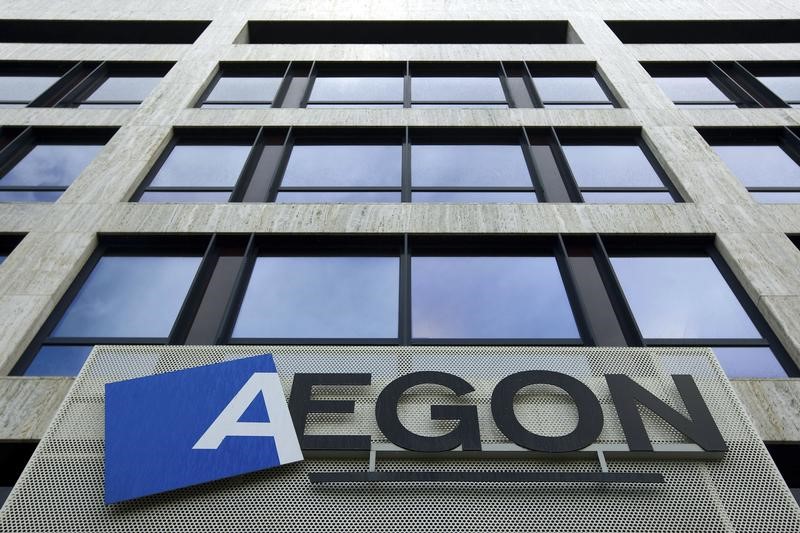By Toby Sterling
AMSTERDAM (Reuters) - Shares in Dutch insurer Aegon NV (AS:AEGN) soared on Thursday, as the company reported better than expected third-quarter earnings and analysts said the company's outlook in the United States had improved thanks to the election of Donald Trump.
The company reported net income of 358 million euros (£314.63 million), swinging from a loss of 551 million euros (£484.25 million) in the same period a year earlier, when it booked a 950 million euro loss on the sale of its Canadian operations.
A poll of six analysts for Reuters had put third quarter net income at 78 million euros.
Shares soared 11 percent to 4.55 euros by 0958 GMT, also
benefiting in part from Trump's win in the U.S. presidential election.
That is due to "increasing U.S. interest rates and hope of less regulation for U.S. insurers," said ING analyst Albert Ploegh, calling it the "Trump effect".
On a conference call with analysts, CEO Alex Wynaendts noted that higher interest rates could lead to higher sale prices for assets the company is looking to dispose of in the United States.
In addition, higher interest rates should lead to better returns for all life insurers in the long run. After opening lower on Wednesday, insurance shares rallied into the U.S. close as bond yields rose.
Aegon's earnings' beat was driven mostly by a company review of its actuarial and other models. Analysts had expected the company to take a large hit due to worse than expected morbidity performance in the United States.
On average, they estimated the charges at 173 million euros -- but in the end they were only 81 million euros.
"We think the assumption changes are surprisingly low, which is superficially a good thing, but may beg questions therefore about risks into the future," wrote KBW analyst William Hawkins, who rates the shares "underperform".
Ashik Musaddi of JPMorgan (NYSE:JPM), who has a "neutral" rating on Aegon, said a positive takeaway from the analyst call was that future assumption changes will likely be marginal.
"This is positive, since it takes away some uncertainty around ongoing negative impact from (future reviews) on cash flows and capital," he said.
Aegon's solvency under Europe's new Solvency II regime came in at 156 percent, down from 158 percent at the end of June, but better than the 153 percent analysts had forecast. The figure is closely watched as a measure of an insurer's ability to maintain dividends.
